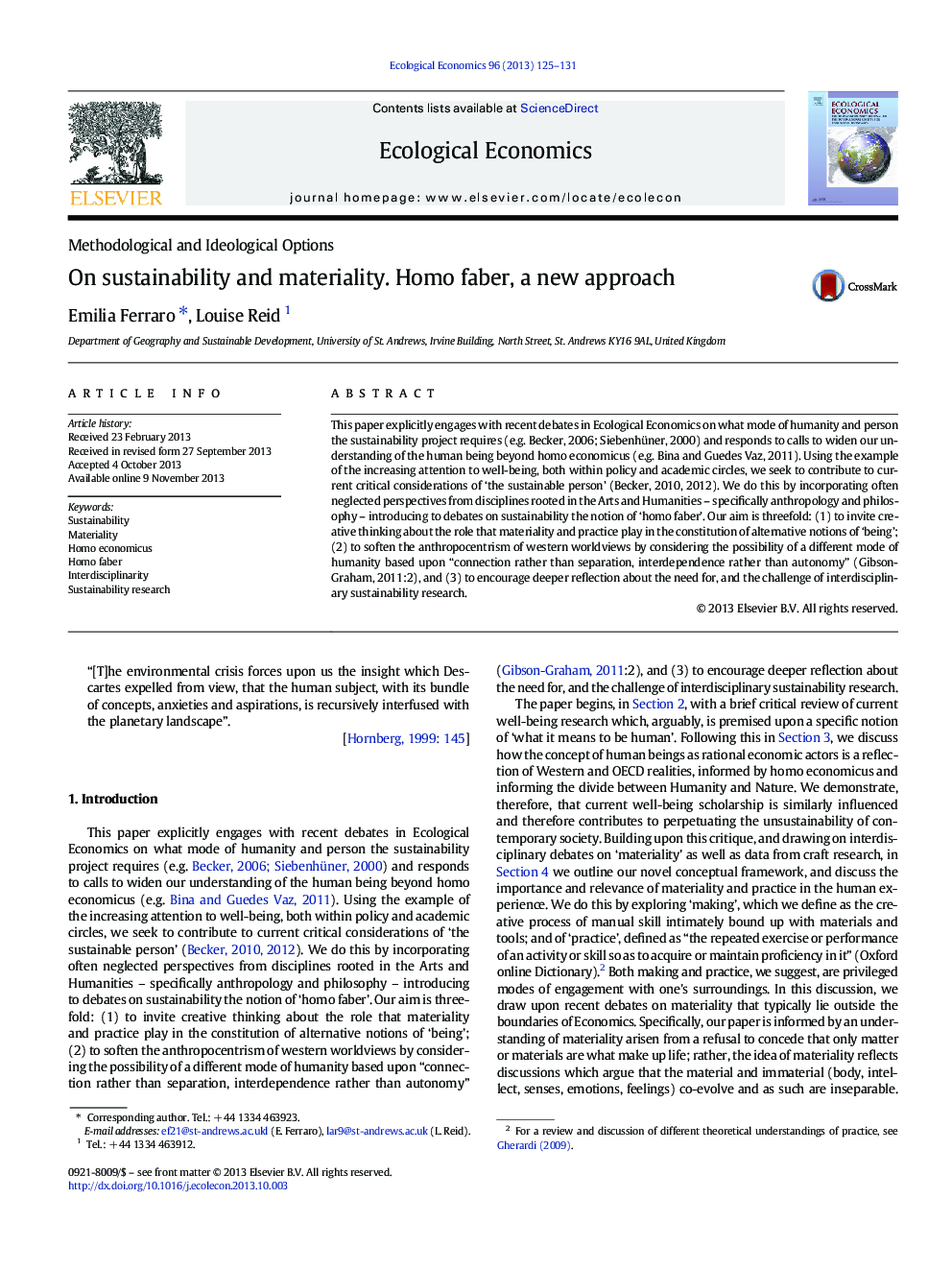| Article ID | Journal | Published Year | Pages | File Type |
|---|---|---|---|---|
| 5049926 | Ecological Economics | 2013 | 7 Pages |
â¢We propose homo faber as an alternative mode of humanity for sustainability.â¢Homo faber acknowledges materiality and practice in alternative modes of 'being'.â¢Making and practice are privileged modes of engagement with one's surroundings.â¢Homo faber acknowledges the 'more than human livingness' of the world.â¢Materiality can potentially develop a stronger ecological sense.
This paper explicitly engages with recent debates in Ecological Economics on what mode of humanity and person the sustainability project requires (e.g. Becker, 2006; Siebenhüner, 2000) and responds to calls to widen our understanding of the human being beyond homo economicus (e.g. Bina and Guedes Vaz, 2011). Using the example of the increasing attention to well-being, both within policy and academic circles, we seek to contribute to current critical considerations of 'the sustainable person' (Becker, 2010, 2012). We do this by incorporating often neglected perspectives from disciplines rooted in the Arts and Humanities - specifically anthropology and philosophy - introducing to debates on sustainability the notion of 'homo faber'. Our aim is threefold: (1) to invite creative thinking about the role that materiality and practice play in the constitution of alternative notions of 'being'; (2) to soften the anthropocentrism of western worldviews by considering the possibility of a different mode of humanity based upon “connection rather than separation, interdependence rather than autonomy” (Gibson-Graham, 2011:2), and (3) to encourage deeper reflection about the need for, and the challenge of interdisciplinary sustainability research.
